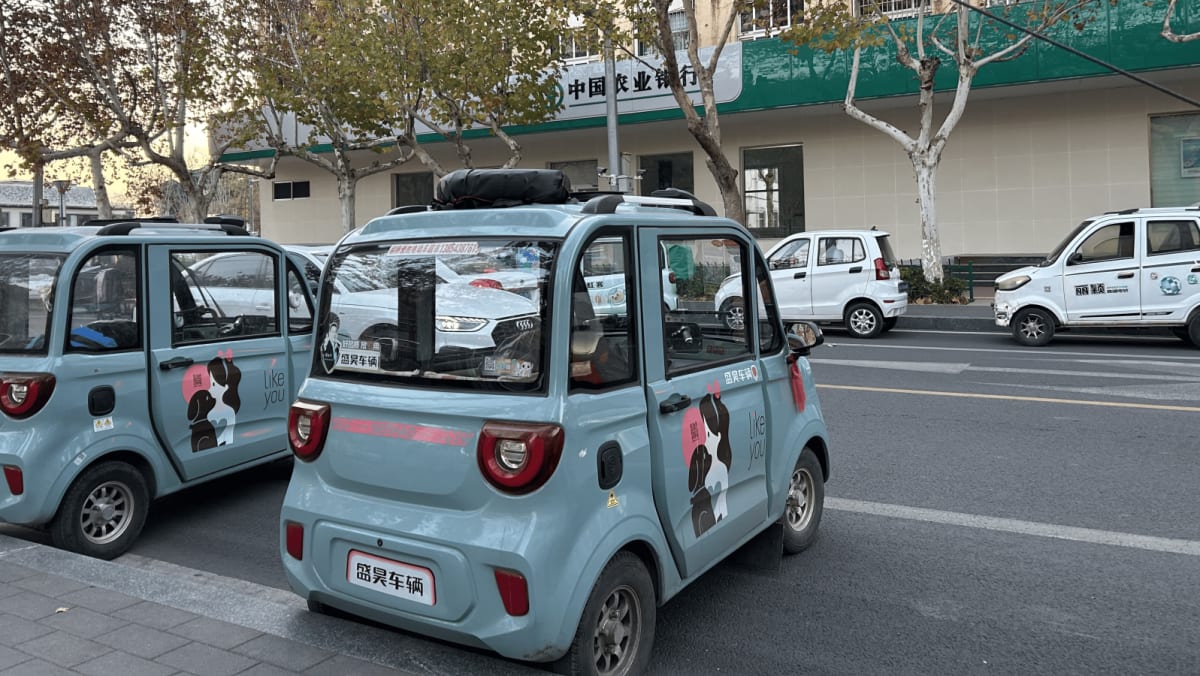JOY FOR THE ELDERLY
Laotoule vehicles started appearing on roads in China in the early 2000s and are one of the most popular forms of transport for seniors today – with more than 10 million stockpiles as of 2020, according to industry figures.
Priced between 2,000 yuan (US$276) and 22,000 yuan, they are much cheaper than conventional cars and vans and are easy to park and drive.
They also do not require vehicle licenses or registration and are not subject to traffic rules and regulations which apply to most conventional motorised vehicles – adding to their popularity.
But their presence is controversial.
Accidents are alarmingly frequent and their unregulated use has led to recent widespread bans in several major Chinese cities.
Nearly 20,000 deaths due to low-speed electric vehicle incidents were reported by authorities nationwide between 2012 and 2016,
Following more than 100 fatalities recorded in 2022, laotoule vehicles were banned in Beijing at the start of the year, no longer being allowed on roads or parked in public spaces.
Laotoule accidents in other Chinese cities and provinces have continued.
An accident in late November was reported in Ganzhou city in the southeast Jiangxi Province, which saw an elderly laotoule driver racing recklessly against traffic and injuring another electric vehicle rider.
It sparked a city-wide crackdown, leading to over 2,000 laotoule vehicles being seized and hundreds phased out.
In Sichuan, where authorities have allowed only registered and licensed laotoule on the road, a tragic accident occurred on a major expressway on Oct 12. A 74-year-old man drove his laotoule against traffic in the overtaking lane, resulting in a fatal collision that claimed two lives.
Many laotoule drivers generally operate without proper licenses and were “less likely to comply” with traffic rules, which creates greater safety risks, said urban public transportation consultant Wang Yuanyuan, also general manager of the Shanghai-based Easy Traffic Consulting firm.
“These vehicles often fail to meet automotive safety standards, such as structural integrity and occupant protection (and) in the event of an accident, these shortcomings can result in more severe casualties,” Wang said, pointing out that poor battery quality and inadequate charging facilities could also lead to fire hazards.
“Furthermore, insurance systems are not well established, making it difficult to handle the aftermath of accidents.”
Zhang Xiang, director of the Digital Automotive International Cooperation Research Center at the World Digital Economy Forum, echoed these concerns. “Without licenses, many drivers simply ignore traffic rules,” he said.
“If drivers commit violations and flee, it’s hard to penalise them. They disrupt traffic order and affect road safety.”
Zhang noted that laotoule sales had been “on the decline” after vehicles were banned in Beijing earlier this year. “Nowadays many places are regulating these kinds of vehicles unlike in the past, when they operated in a grey area,” he said.
While drivers like Huang have acknowledged safety concerns about their vehicles, giving them up was not an option because they were still a cheap and convenient way of getting around.
“From a safety perspective, it’s understandable to want these vehicles registered and insured but in some cases, it’s just not possible,” Huang said.







